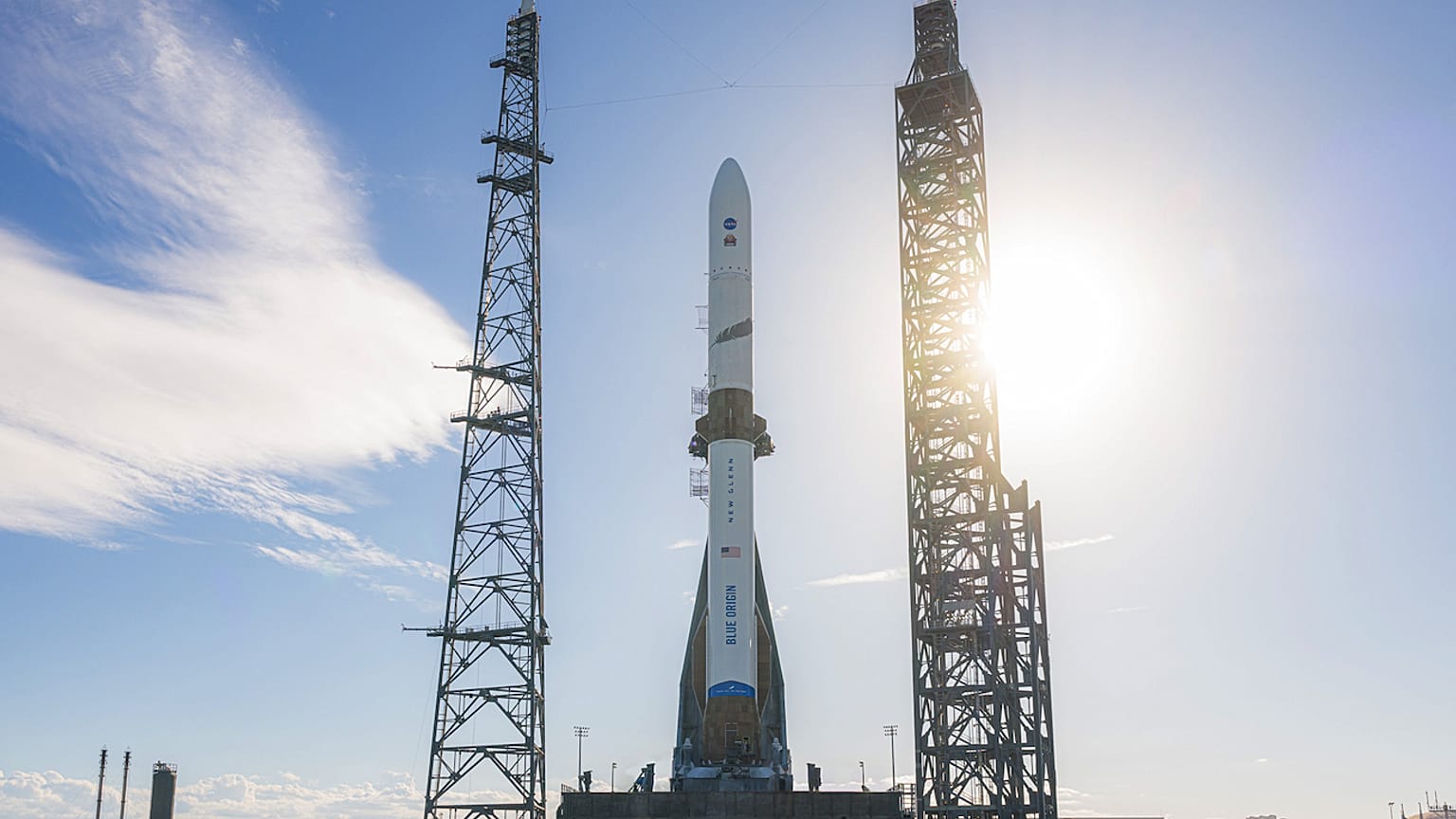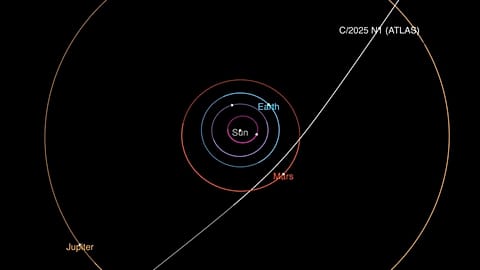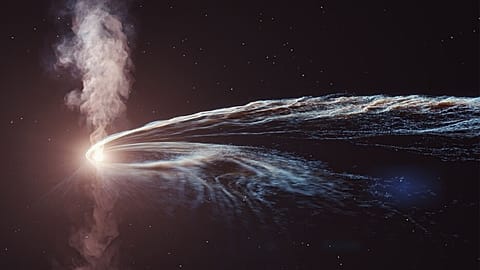The rocket launch scheduled for Sunday afternoon was scrubbed due to weather. Blue Origin says its next launch will take place no earlier than 12 November.
Jeff Bezos’ space company Blue Origin scrapped a planned launch for its New Glenn megarocket on Sunday afternoon, rescheduling it for Wednesday at the earliest.
The company said on X that weather was to blame, citing the “cumulus cloud rule” that prevents rocket launches through clouds that are known to contain hazardous electrical fields.
“Our next launch attempt is no earlier than Wednesday, November 12, due to forecasted weather and sea state conditions,” Blue Origin said.
The company added that it worked with the US Federal Aviation Administration (FAA) to secure a new launch window on Wednesday evening local time, bypassing the commercial rocket launch ban due to the US government shutdown.
The “NG-2” launch from Cape Canaveral Space Force Station in Florida will be New Glenn’s second mission, as well as its first commercial flight.
As part of the American space agency NASA’s ESCAPADE mission, the rocket will send two identical spacecraft to Mars, where they will orbit the Red Planet to measure the dynamics of its magnetic field and atmosphere.
New Glenn will also transport Viasat technology in support of NASA’s Communications Services Project, according to Blue Origin.
A giant, reusable rocket planned for commercial use
Named after the first American to orbit Earth, New Glenn is one of the largest vehicles ever built – standing at more than 98 metres with a capacity to carry a payload twice as big as standard five-metre class commercial launch systems.
It can carry more than 13 metric tonnes to geostationary transit orbit and 45 metric tonnes to low Earth orbit.
New Glenn’s biggest selling point is the fact that it is reusable – its first stage is designed for a minimum of 25 flights. It also uses cleaner fuel – the upper stage is powered by liquid hydrogen and the first stage is powered by liquid oxygen and liquefied natural gas.
The company says these features make it more affordable and sustainable for a variety of paying clients.
But Blue Origin is still trying to prove that the reusability is possible in practical terms. When New Glenn made its maiden flight on 16 Januaryfrom Cape Canaveral, the upper stage successfully reached orbit, while the booster was lost before it could land.
The company hopes to land the booster for the first time during this second flight, proving it’s a worthy competitor for Elon Musk’s SpaceX.


















